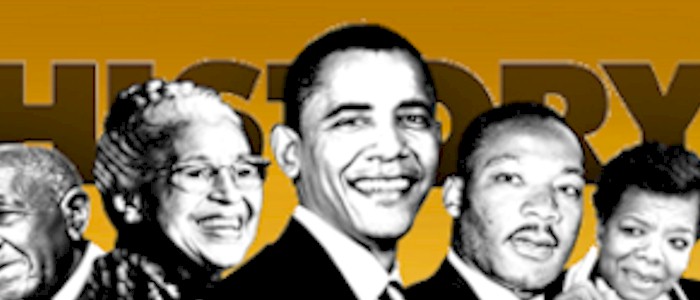 What is Matrix Free Blackness?Although I am unaware of the phrase existing in use elsewhere, Matrix Free Blackness is a phrase I use to describe a point of view that requires the questioning and revisiting of all history and traditions regardless of its sacred place in society. I believe that this is especially important to black Americans because, unlike other cultures, the American black culture really began after the emancipation of slaves.
What is Matrix Free Blackness?Although I am unaware of the phrase existing in use elsewhere, Matrix Free Blackness is a phrase I use to describe a point of view that requires the questioning and revisiting of all history and traditions regardless of its sacred place in society. I believe that this is especially important to black Americans because, unlike other cultures, the American black culture really began after the emancipation of slaves.
Separated from the continuity of their tribal cultures and nations of origin, African slaves were denied education and the sanctity of marriage and family for centuries. They were cattled and fitted into one matrix after another until we, their descendants can only define ourselves by an entire continent many times more vast and diverse than the European slave master descendant who can celebrate a specific cultural and national heritage several generations back.
Thus the many traditions that are uniquely “African American” must be tested against a history that was not only unfavorable to blacks, but sought to also patently disenfranchise them as a people. Each successive generation, now, as a responsibility to the progress forwarded by the last, must challenge and revisit the truth of history in order to loose itself from the lingering anchors of discrimination embedded by generations long past and naively followed often for no other reason than tradition.
What will prove uncomfortable about this process is its necessity to also revisit the sacred sacrifices of black history to discover its flaws without dishonoring those who had not the benefit of hindsight. Having entered the age of our greatest liberties, we must be careful that the ties that so importantly bound us one to another through the storms of discrimination, do not now sink us as the waters rise. We cannot use the same racial reasoning of our captivity to remain unwisely committed to those who are black but also dead to our values. The greatest gift of progress is the liberty of individuality.
In the decades that followed Civil Rights, came a lot of social programs intended to help the black community. There was also a lot of resistance against those social programs that politicians like Marion Barry and activists like Jesse Jackson and Al Sharpton had to defend even if they had to lie about the facts to sustain the momentum of progress. It was just the way the game was played.
But that was then. This is now. We can no longer lie about the truth just so we can’t give racist white people with so called conservative agendas the satisfaction of being factually correct even though we know how far they will go to distort those facts. That strategy was born out of politically choosing to try to beat white folk at their own game. But that is not who we can be anymore.
We can no longer be apologists for black people just for the sake of protecting blackness. That narrative only sustains a victim mentality within our children who, despite continued inequities, are still far more privileged than we or our fathers have known and are far more integrated than our generation for whom a lot of our experiences are only stories to them. They are part of a generational nexus where hip hop loving white kids and Internet nerds possess a sense of fairness that is not bound to the legacies we try to tie them to.
We can only educate them as to our experiences. We can no longer expect them to live the fears that we are burdened with as a result of those experiences. They have to find their own way. My father’s ambivalence toward whites was profound and clear because of his life experiences. Nothing going on with Ferguson would surprise him given the generation that is largely in power there. He warned me about that generation, but he encouraged me to seek hope within my own .
In essence, the greatest gift he gave me was permission to be disloyal to his fears. Because of that, I was able to to take the most noble aspects of those lessons and allow them to guide me through my own struggles and successes. I now stand at the place where my father once stood and I can neither command of myself nor of the progeny of blackness a loyalty to blackness simply for blackness sake.
True progress demands of us the merciless brutality of truth, from which causalities will emerge from both the living and the once celebrated posthumous dead. The lesson of the solidarity between black and white that could only have made possible the election of a black president is that, like the end of all major battles, we must now stand down to emerge into a diversity of cause. Otherwise we have battled only to prove the point of the defeated. That it is them; or us- and we give form to myth- out of which fear creates a more desperate enemy.
The matrix that once defined who blacks are has been shattered. The more devious matrix that continues from within to tell us who we should collectively be must also be defeated with all due diligence. The war that remains is between the machines.
